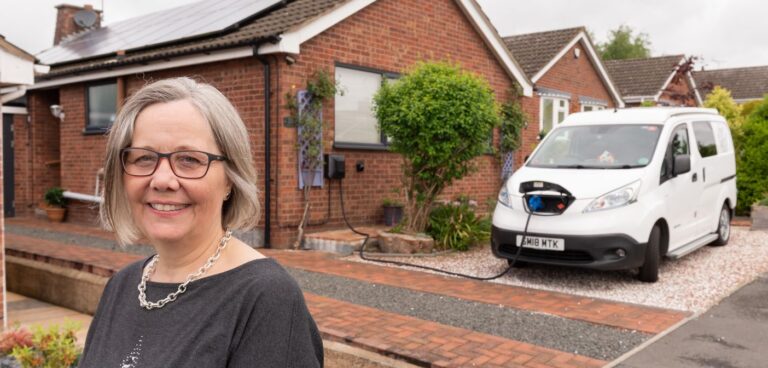The UK’s Electric Nation vehicle-to-grid (V2G) project has reportedly demonstrated that EV drivers can save on their energy bills using the smart charging method.
Electric Nation, in partnership with CrowdCharge, recruited 100 Nissan EV owners in the Midlands, South West England and South Wales to take part in a V2G charging trial funded through the Network Innovation Allowance (NIA).
Electric Nation, which is an innovation project of Western Power Distribution (WPD), partnered with multiple energy suppliers using different import and export tariff types to simulate a future scenario in which streets across the UK have a number of EVs using V2G chargers operated by different energy suppliers.
Each supplier used their charger groups to test their various energy services utilising CrowdCharge’s demand management platform, which provides optimised charging sessions.
According to Electric Nation, the project has proven that V2G charging works both from a technical point of view, and from the perspective of customer acceptance.
It has also shown that EV drivers can save on their energy bills by charging at off-peak times when energy is cheaper and greener before selling energy back into the grid, or using it at home, thereby minimising energy demand at peak times.
In turn, this can reduce stress on the electricity grid and enable low-cost renewable energy to be used in the home when grid prices and the carbon content of electricity are high.
Project participants with solar panels were able to charge their EVs with free renewable energy, which could also be transferred at peak times to further ease demand on the grid.
Furthermore, the trial’s use of numerous electricity providers and tariffs demonstrated how tariffs influence charging behaviour, said Roger Hey, WPD’s electricity system manager.
“V2G charging doubles the amount of flexibility in the electricity system, although in reality it brings even greater benefit because it also allows us to use the same unit of energy multiple times through charge/discharge cycles.
“V2G has enormous potential to reduce the amount of new electricity network that we build and can contribute towards optimising the whole energy system in Britain, ultimately needing less generating capacity and reserve.”
Marie Hubbard, who took part in the trial using a Nissan e-NV200 campervan, said the V2G charging method had reduced her electricity bill from £50 to £25 per month.
What’s more, she even made her £25 per month by supplying energy to the grid via solar panels on the roof of her house and an electricity tariff that allows her to import and export energy.
“This shows that vehicle to grid charging has the potential to reduce people’s energy bills, as well as helping to reduce the amount of electricity generated by fossil fuels,” said Hubbard.
According to Mike Potter, CEO, CrowdCharge, there is also an opportunity for commercial fleets to utilise V2G charging technology, however only Nissan EVs can currently be used for V2G charging due to their CHAdeMO technology.
The majority of EVs have the CCS charging system, which is due to be V2G-compatible by 2025, and Potter said “action will be required from the energy supply industry to make V2G work for consumers”.
The Electric Nation project, which originally launched in 2018/2019 before the start of a second phase in June 2020, is now complete and the findings are to be published in an official end-of-project report soon.





